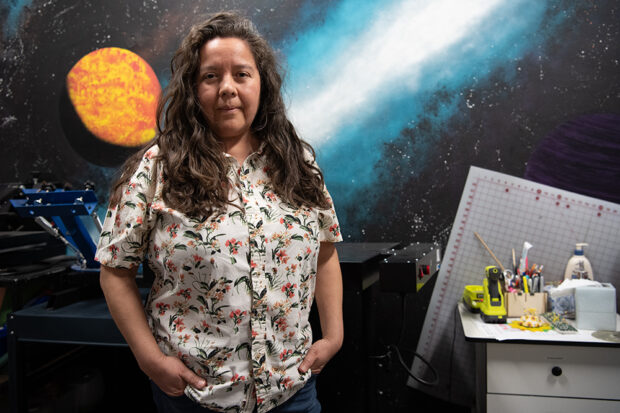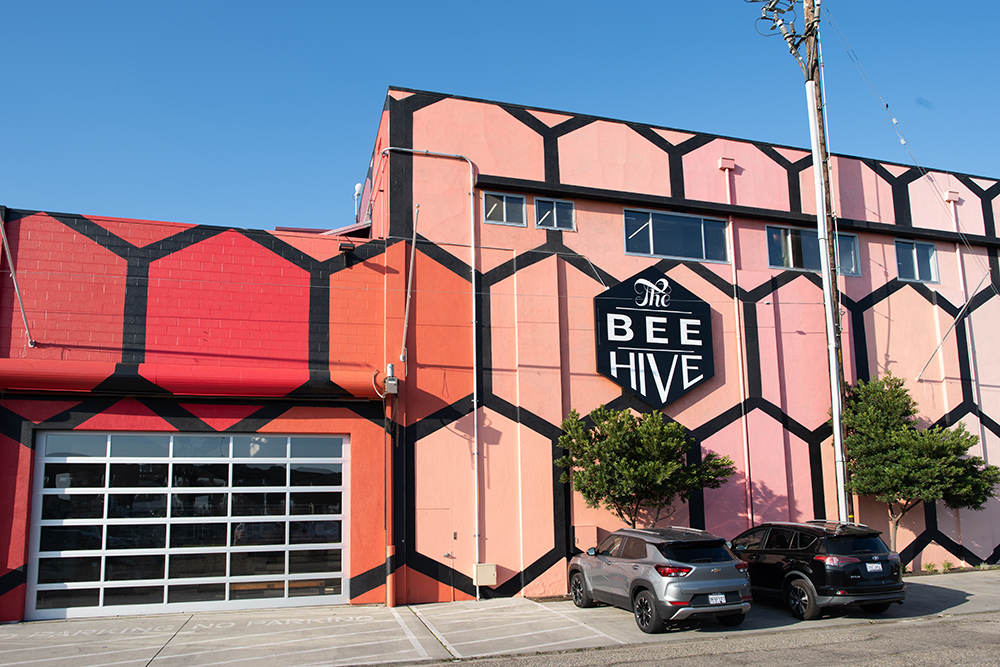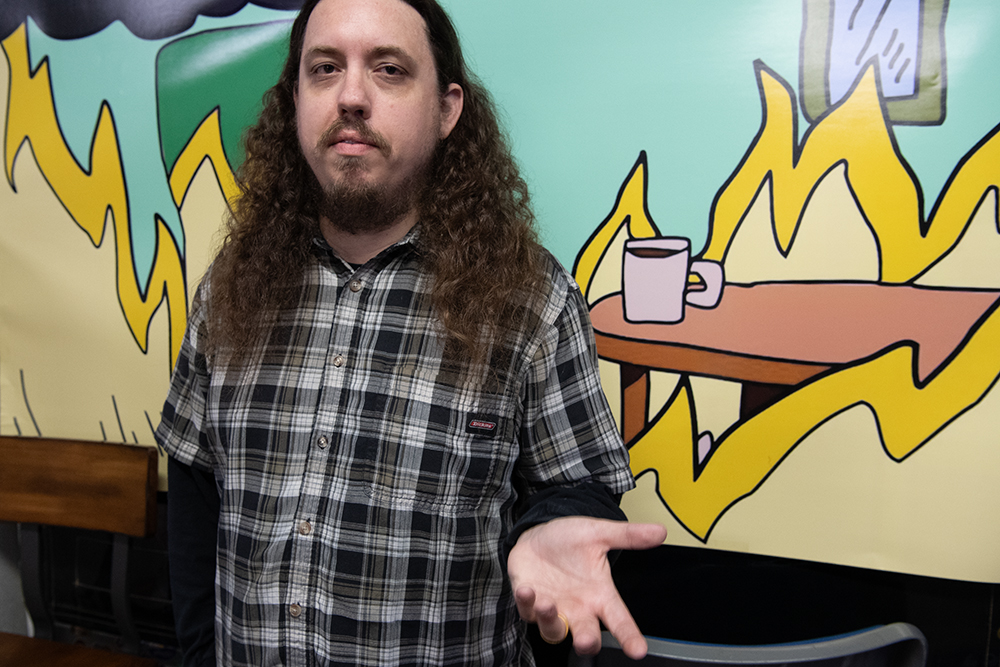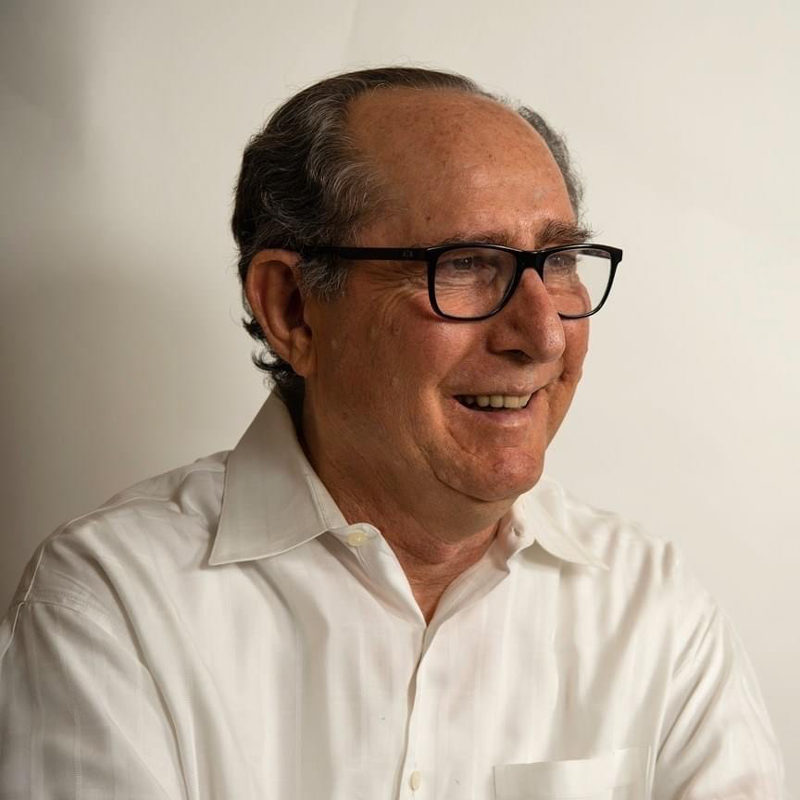
A dozen or so stunned techies gathered early during the evening of May 29 last year at Root Access Hackerspace, a modest location in Fresno’s Tower District where they were surrounded by computers, 3D printers and a rack of servers. The techies had worked for Bitwise Industries, the now infamous Central Valley tech company. Derek Payton, director of the hackerspace, was also a Bitwise lead and senior software developer.
Bitwise had crashed and burned that afternoon when co-CEOs Jake Soberal and Irma Olguin Jr. announced in a Google Meet call that they had run out of money, the two of them were responsible and all 900 employees would be furloughed. The call lasted six minutes. It was just that simple.
The shock among those at the hackerspace was raw. They ate ice cream, drank whiskey and commiserated. Their futures were unpredictable. Despite some negativity, their presence together was the start of a recovery, of “Bitwisers helping Bitwisers.”
“No one belongs here more than you”—Bitwise’s slogan, which could be seen on their buildings and vehicles—spoke to its inclusionary mission.

Bitwise had championed the training of workers from underserved communities, aiming to give them tech skills that could lead to well-paid work. For example, instead of pursuing farm labor or warehouse jobs, young people of color could become coders.
Bitwise, as a supplier of workforce training, appeared to be making money. Governor Gavin Newsom called Bitwise “a remarkable economic story in Fresno and in the Central Valley.”
Bitwise attracted large sums of venture capital. However, for the same reason it was admired—its focus on training—it became a failure to its funders. Workforce training, as great as it was for the trainees and the community, could not “scale up.” In other words, Bitwise was not experiencing rapid growth; it could not bring in larger and larger returns on investment.
Soberal and Olguin tried to expand to Bakersfield and several other sites around the country, but that was also a troubled venture. As they got stuck, they took desperate measures. They are now charged with wire fraud and face 20-year sentences.
In a press release, U.S. Attorney Phillip A. Talbert said: “The defendants could have chosen simply to admit the failure of Bitwise’s business model. Instead, they used lie after lie to pull over $100 million into a dying venture through fraud.
“Olguin and Soberal fabricated bank statements, lied to investors, provided false financial information to their board of directors, forged documents and used buildings Bitwise no longer even owned as collateral for loans, all while lining their own pockets.”

Payton is more forgiving. “I don’t have any hate or resentment toward Irma or Jake,” he said.
“The reality is, they did what they did…My guess is that the company was struggling and they were just trying to keep things afloat and did some things that were not super great—legally speaking, maybe ethically speaking too—but with that goal of keeping things afloat at all costs in mind…
“I believe that if things would have played out the way they hoped, they would have simply fixed things behind the scenes and no one would have been the wiser.”
Payton knew Olguin from before Bitwise was founded in 2013. Not for a moment, he said, did he think her ideals were just hype. According to him, she believed deeply in the mission.
She made many gestures of goodwill that people appreciated. You might find her answering the phones at the front desk. She got matching tattoos with employees. She was a role model as a queer Latina, the daughter of farmworkers.
One of the people Olguin brought along was Jenn Guerra. Her story is an example of the openness and fluidity that was found at Bitwise.
Guerra had worked in San Francisco as a mobile massage therapist for many years, going from one high-tech office to another giving massages.
She was in Fresno when the pandemic hit, and she was desperate for work. She knew someone who knew Olguin, and she put her name in to “do whatever.” Olguin did a round of hiring, bringing in a hundred workers, including Guerra.
Guerra went to work for Onward, a virtual call center within Bitwise intended to help clients with pandemic employment issues. While she worked there, she took Bitwise classes and did an apprenticeship in inside sales.
Later, she was tasked with finding government grant funding for Bitwise, working with schools developing apprenticeship programs and managing clients. She became a “partnership manager.”
Guerra found working for Bitwise appealing, and she was well paid. “I was kind of [doing] everything, like whatever they asked,” she said.
“So do it!” she added, laughing.
“I had been self-employed for most of my life. I never wanted to work for a company,” she said. But Bitwise wasn’t just another company.
Everything seemed fine up until the moment it came crashing down, blindsiding her and so many like her.
She has now gotten on her feet, starting a tech company with a couple of other Bitwisers. It’s called Reclaim Technologies, and it creates, she said, “apps, websites and other tech solutions.”
“Bitwise helped us to dream…to step up,” she explained.

The president and CEO of the Downtown Fresno Partnership (also known as the Downtown Association of Fresno), Elliott Balch, understands how important Bitwise was for the city and community, especially downtown Fresno, where the Bitwise offices were located. Bitwise opened four large buildings downtown: Bitwise South Stadium, the Bitwise Hive, Bitwise 41 and the State Center Warehouse. They have been renamed to remove the Bitwise name.
The offices are more occupied now than when Bitwise was around. Will Dyck is the owner of three of the four buildings. Within days of the news of Bitwise’s closure, Dyck focused on reassuring tenants that things would be okay, retaining 25 of them. He has since gotten 26 new business concerns to move in.
“The reality is that the ownership since taking control of the buildings has done a remarkable job in getting the office spaces filled,” Balch said.
“The things that are important are training people for careers in our economy in an inclusive way,” Balch emphasized.
“America needs to make sure that our tech industries are creating opportunities inclusively where as many people as possible are able to participate and contribute to innovation. This was true before Bitwise and continues to remain true after Bitwise.”
Which is why Payton’s Root Access Hackerspace—an all-volunteer community—is so important. Immediately after the furlough, the hackerspace organized a food pantry that was open for months for his former co-workers. It worked closely with City Council President Annalisa Perea, who represents the Tower District, in coordinating headshot photography and resume-building sessions for a mini job fair for immediate placement—“Bitwisers helping Bitwisers.”
As Bitwisers had to wait for thousands of dollars in Bitwise paychecks that bounced and weeks of missing pay (which are still missing), Payton’s spot was a lifeline for his previous co-workers. Bitwisers only recently could access their 401K contributions—some nine months after the furlough.
Bitwise violated California’s Worker Adjustment and Retraining Notification, or WARN Act, by not giving a 60-day notice that a furlough was coming.
After several months, the Fresno Regional Workforce Development Board (FRWDB) funneled $2.3 million in California state funds to help ex-Bitwise employees. The State Center Community College District received $1.1 million of that funding to create apprenticeship programs.
The rest is being disbursed to individual ex-Bitwisers to help them get started again. Although the paperwork for that was too much of a hassle for some, Guerra received assistance. The FRWDB bought her supplies, clothes—even glasses.
Root Access wanted to get funding to set up equipment to train workers in computer-assisted parts manufacturing but was told by the FRWDB it had to have all the equipment already in place in order to receive funds.
Root Access always had a strong connection with Bitwise, without being involved in the fraudulent activity. It grew over the years, from having some folding chairs in an empty room to functioning as a buzzing computer arts center. Therefore, it’s surprising that Root Access received none of the FRWDB money.
“Downtown’s role in the Valley is to be a place where innovators can go to find community,” Balch concluded. “Bitwise’s particular approach didn’t work out. But downtown still has a role to play in the Valley in terms of creating more technology—agricultural technology.
“There’s got to be a place where this kind of tech cluster industry—a knowledge-based industry— can show up and grow and attract the right kind of capital investment. And that’s downtown [Fresno].”
Aside from the scandal, Bitwise had a good vibe, which was not quantifiable or corruptible. Downtown needs to hold onto that vibe and broadcast a positive message: “No one belongs here more than us.”


